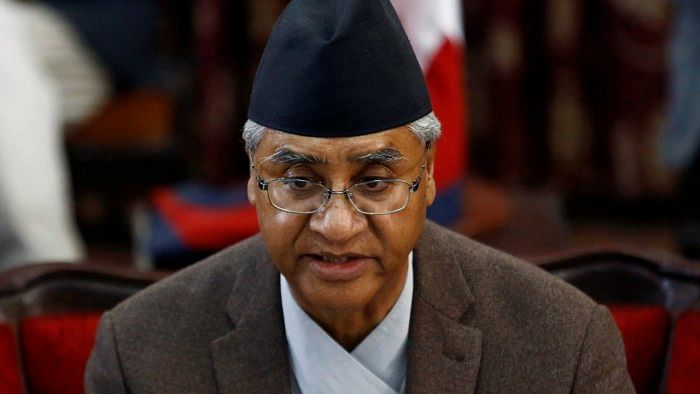
Sher Bahadur Deuba is a master of alliances that swept dividends again Tuesday when he was named Nepal's prime minister for the fifth time.
Though 74, the head of the social-democratic Nepali Congress party is known to consult astrologers whom he says told him he would be prime minister seven times. So he may not get a long stint in office, but Deuba is not expected to retire anytime soon.
Deuba returns to power three years after losing against a communist coalition alliance in a 2017 election. But communist K.P. Sharma Oli's desperate attempts to cling to power were foiled by the Supreme Court.
Deuba first came to power in 1995 and soon survived a no-confidence with some of the rough and ready tactics that mark Nepali politics.
He reportedly dispatched an influential minister to Thailand before the vote so the minister could not fan sentiment against him in parliament. Votes were also allegedly helped by duty-free cars for parliamentarians.
Born in a remote western district, Deuba rose through the ranks of the Nepali Congress student wing when the Himalayan country was still an absolute monarchy.
He was jailed and tortured for protesting against Nepal's then party-less "panchayat" system of local councils overseen by the king.
Deuba suffers from a speech defect reportedly caused by the torture he endured, which left him with permanent damage to his tongue and lips.
The veteran politician also held power in the final years of the brutal 10-year civil war to 2006, which claimed more than 16,000 lives.
In 2002, with the insurgency raging, King Gyanendra Shah removed Deuba as prime minister, branding him "incompetent" and took control.
The label added insult to Deuba's image as a smooth political operator motivated more by power than ideology.
Twenty months later, however, the monarch was instrumental in bringing Deuba to power for a third time, only to remove him again one year later. Many saw Deuba as the king's pawn.
The monarchy was abolished two years after the civil war ended, and the rebels joined mainstream politics.
Deuba's last tenure as prime minister was the result of a gentleman's agreement with one-time foe Pushpa Kamal Dahal, the former Maoist guerrilla chief.
Sudheer Sharma, editor-in-chief of the Kantipur daily, said that "expectations are not high" for Deuba's latest tenure.
"We have seen him in power many times and have seen his style... he is not a change-maker or someone to take big leaps," Sharma said.
"But I feel that he will not attack fundamental rights of people or step on the constitution like his predecessor."
Political experts say winning a vote of confidence from the current hung parliament could be tough for Deuba, and he could struggle to maintain a government until the next election at the end of 2022.
He earlier claimed to have the support of 149 members from five political parties in the 275-seat lower house. A crucial number of those votes belong to the dissident faction of Oli's party, and the ex-PM is already pressing them to withdraw support.
However, Deuba has retained power in the past through clever deals.
Political analyst Shyam Shrestha told AFP that coalitions in Nepal have never been stable, and Deuba faces a challenge to accommodate all partners.
"He will also have to revive an economy crippled by the pandemic and prepare the state mechanism to fight against the possible third wave," he said.